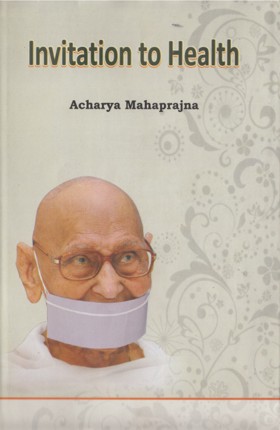Let Us Look For A New Word
One meaning of truth is straightforwardness, simplicity. Ease of body, ease of language ease of emotions and non-discordance. Deceit is false. The sphere of religion is the sphere of sādhanā(spiritual practice) of truth. At the same time, it can also be asked, have the seeds of deceit not grown on the field of religion? Has religion been benefited by them in any way? Has there been any decrease in communal conflicts? These questions cannot be answered in affirmative.
Sarvadharma-samabhāva: hermeneutics
Many words like sarvadharma-samabhāva (equal regard for all religions), sarvadharma samānatva (equality of all religions), sarvadharma sadbhāva (good feelings for all religions) etc. are prevalent. In them truth is less and there is more of formality. Mahatma Gandhi wrote, 'The respect we give to our religion the same respect we have to pay to other religions, mere tolerance is not sufficient.' (Bapu ke Ashirvada, P. 8)
What is the meaning of sarvadharma samabhāva? What is the connotation? An ordinary person does not know its meaning. One meaning of samabhāva can be feeling of neutrality. The other meaning can be feeling of equality. If we are neutral to all religions and we do not have partiality for any then our position will be that of a spectator and our duty will not come forth for any religion. We must make at least one religious system exemplary for us.
Maze of equality
If we take the meaning of the word sarvadharma samabhāva as feeling of equality for all religions, then will our thinking be free from deceit? One person regards nonviolence as dharma (religious duty). Some other person has contrary opinion. He gets the strand of dharma in violence also. Will a follower of ahimsā dharma (duty of non-violence) regard himsā dharma (duty of violence) as equal to it? Many beliefs of religions are contrary to one another then how will the talk of regarding them as equal materialize? If the principle of having the feeling of equality for all religions is beneficial then where is the difference? If there is no difference, then it will mean there is freedom of thought. If there is freedom of thought, then definitely there will be difference as everyone cannot have the same mode of thinking. If there is inequality (difference) in religious viewpoints, then how will the feeling of equality for all religions grow? Is it good to make human being bewilder in this maze of equality?
Let us look for a new word
Some elements of equality may be found in all religions. It is necessary to search them. It is equally necessary to search the elements of inequality. Without searching them we will not understand the process of development of thought of religion or philosophy. In the (classical) age of philosophy the process of propounding and refuting (khandan-mandana) continued for long. Jaina, Bauddha, Naiyāyika, Vaiśeṣika, Sāmkhya and Vedānta, all these analyzed and examined one another. But this took place at the level of scholars or at intellectual level. The issue of spreading communal tension and to generate mutual strife was not associated with it. (At present) it is not an analysis and examination of distinction in thought between Hindus and Muslims, it is not a question of philosophical analysis and examination. It is not proper to say that this conflict is religious or sectarian. It is purely caste conflict. Hindus and Muslims have become two castes and both have come in front now and then to safeguard their gains and self-interests. To eliminate this confrontation the strategy of words like sarvadharma samabhāva or samānatva has been formed. That effort has not been meaningful. It is proper time now to break this strategy and to put feet on the ground of reality. A new word is searched which is not alluring, not enchanting, not deceptive but which reveals the truth.
A language which touches reality
A viewpoint of relativity towards all religions, in our view this is the language which touches reality. Whatever has been said by every religion that has been stated out of its own perspective. We have to try to understand its perspective and should not try to impose our perspective on it. Acharya Siddhasena said, 'As many are the point of views as many are the modes of speaking.' This principle of relativism is the means to resolve the dispute. No individual can propound the whole truth. He can propound some relative truths only. We should not evaluate it from absolutistic standpoint. It is not necessary, nor possible, that all religions should have similar views. This diversity is a consequence of freedom of thought and therefore we should respect freedom of thought and cultivate tolerance. We should practice to change the habit of despise. If this much is done, then the issue of spreading violence in the name of religion or sect can come to end. We should provide highest value to real. Our awareness of the real is a solution of many problems arisen due to imagination.
 Acharya Mahaprajna
Acharya Mahaprajna
